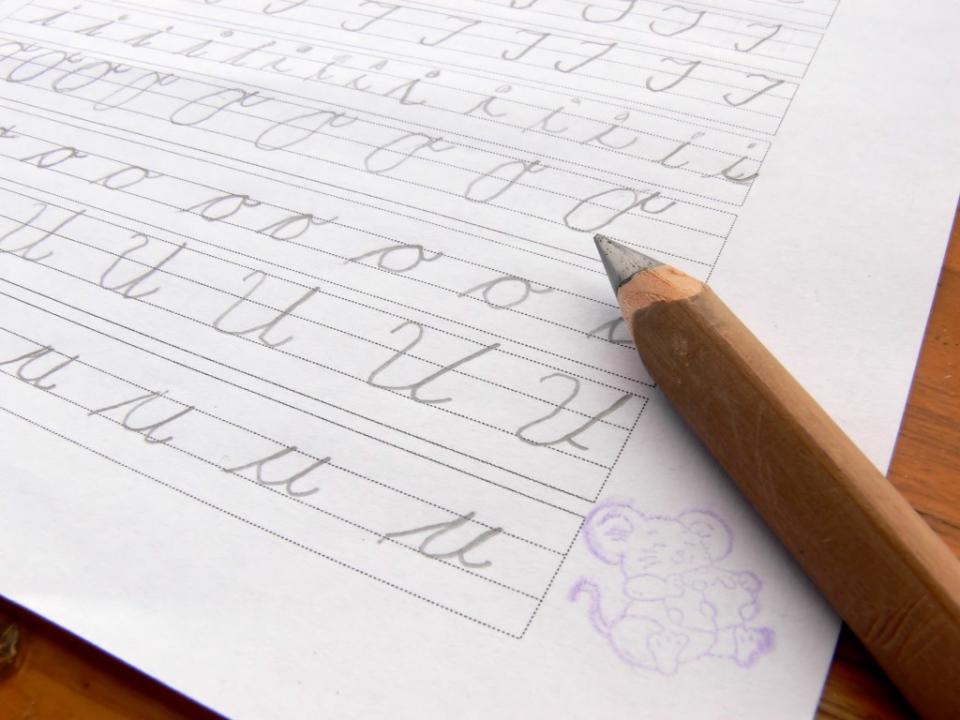Should handwriting be taught in school? Debate rages as American IQs drop for first time in decades

The pen might be mightier than the sword, but it could soon be just as relevant.
Educators and parents are observing a surge in US youths who don’t know how to read or write in cursive — which they blame on handwriting increasingly becoming obsolete in the digital age.
This handwriting illiteracy has in turn made them unable to perform basic adult tasks.
“My 20-year-old granddaughter struggles to sign a check,” Kimberly Jacovino of Monroe, Connecticut, lamented to the Daily Mail.

Meanwhile, Dr. Lori Koerner, the assistant superintendent for the Riverhead Central School District in New York, claims that she has “encountered too many secondary students and employment candidates who cannot sign documents relative to their onboarding process.”
This penmanship phenomenon isn’t just anecdotal, either. According to a 2021 study by OnePoll, a staggering 70% of Americans struggle to read their colleague’s handwriting while 45% claim they can’t even make out their own.
Meanwhile, over 30% of survey respondents said that their illegible handwriting would make them anxious about writing on a board in front of colleagues. Others have said signing important documents would be stressful without the ability to write in cursive.
Experts have blamed this trend on the rise of digital technology, which has seen teachers increasingly swap the pen out for the keyboard in the classroom.
This proliferation of digital discourse is being blamed for lower IQs, which decreased for the first time in the US in decades.
Last year, scientists at the University of Oregon and Northwestern discovered that IQ scores had dropped sharply, which they chalked up to technology decreasing attention spans and negating the need to think deeply about subjects.
Meanwhile, Hetty Roessingh, a professor emerita of education at the University of Calgary, claimed that even 5-year-olds are falling behind as the classroom becomes increasingly saturated with this IQ-sapping tech.

Conversely, a new study by Norwegian scientists found that penmanship boosts brain connectivity, particularly across regions responsible for learning and memory. This is, in part, due to the fact that it’s a fine motor skill rather than a simple point-and-swipe operation of an iPad or other digital device.
“When writing by hand, most of the brain is active,” said lead author Audrey van der Meer, who teaches neuropsychology at Norwegian University of Science and Technology. “This requires the brain to communicate between its active parts which, in turn, puts the brain in a state that helps both children and adults learn more and remember better.”
Unfortunately, like a muscle that atrophies when not exercising, these declining rates of pen use have made this skill diminish to the point that experts fear it’s going to go extinct.
“It is like the telephone on the wall,” Tracy Bendish, an ABA autism therapist for Jefferson Public Schools in New Jersey, told Daily Mail. “Less and less used and then not there anymore.”
In order to save the skill from extirpation, education experts are urging schools to reintegrate cursive into their curriculums. Many education centers stopped teaching handwriting in 2010 with the Common Core State Standards initiative, which prioritized math and reading over cursive as they felt it was irrelevant compared to typing when it came to applicable adult skills.
Recently, California and New York have passed new legislative bills requiring students aged 6 to 12 years old to learn cursive writing.
California Assemblymember Sharon Quirk-Silva claimed that it was essential for students to not only be able to write in cursive but to read it as well.
Along with signing checks and other documents, cursive proficiency is necessary for being able to decipher certain documents like the Declaration of Independence and the “Diary of Anne Frank,” experts argue.
“If handwriting becomes extinct, it would be a major loss to understanding history or connecting with our past,” Roessingh said.
Assistant superintendent Koerner summed up the importance of cursive like this: “Though technology has its benefits, children need to be able to read cursive in the event a document is presented to them along their journey. They most certainly, at the very least, need to know how to sign their name.”

